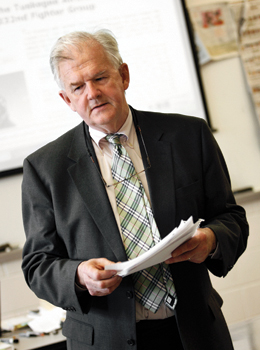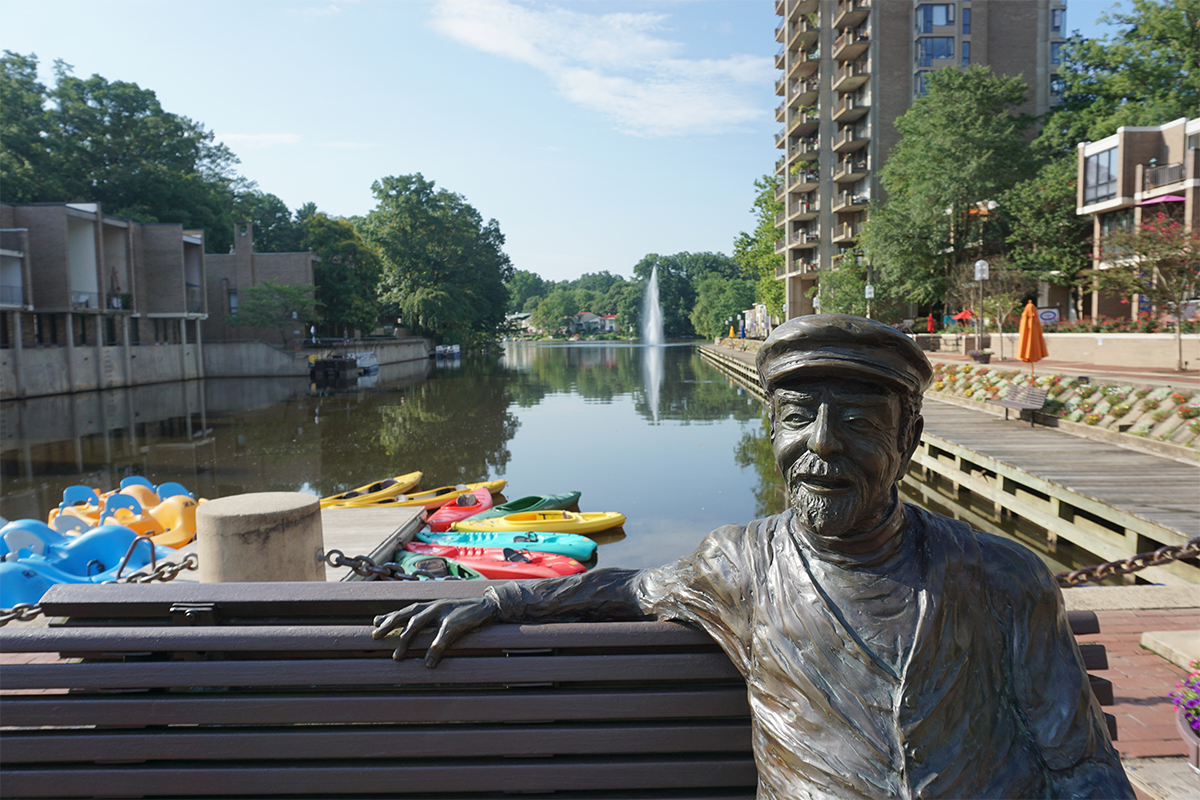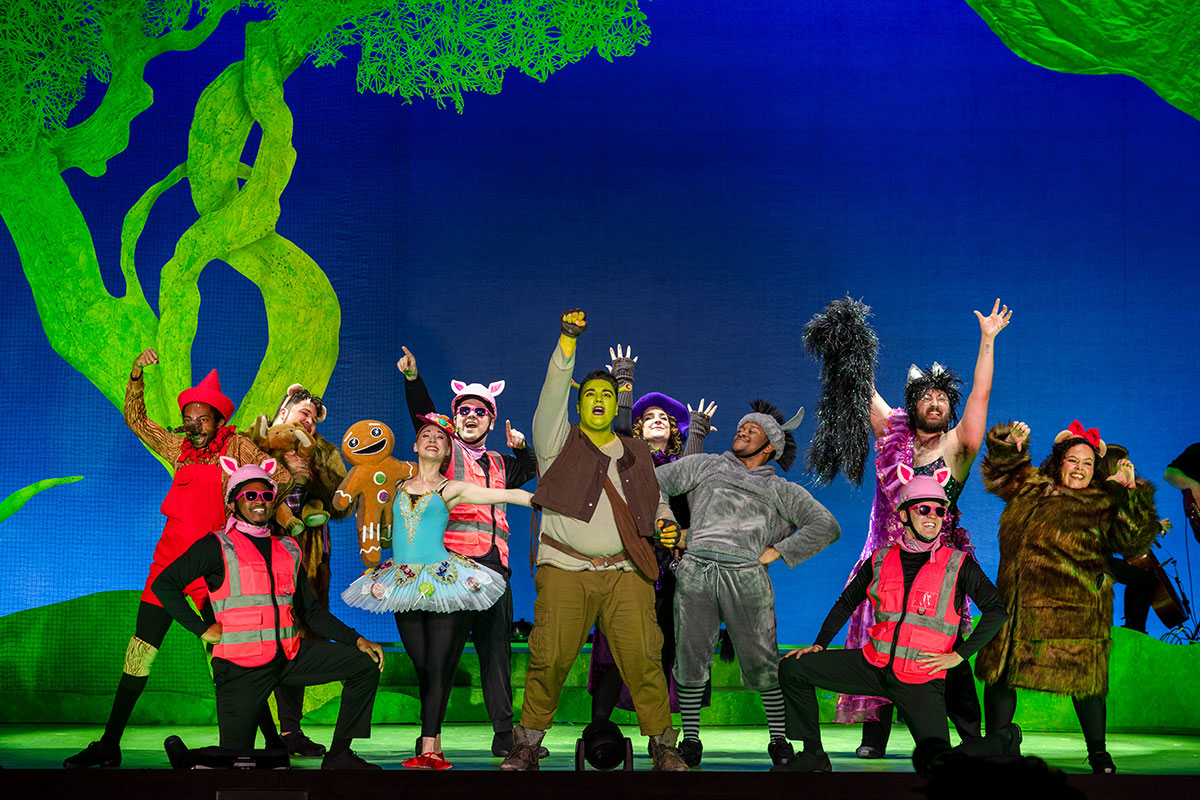When called for, Patrick Welsh isn’t afraid to publicly rebuke Northern Virginia’s schools—even at the risk of his job as a T.C. Williams educator
By Helen Mondloch

It’s Back to School Night at T.C. Williams High School in Alexandria, and Patrick Welsh is shaking hands with the parents of his English 12 students as they enter the classroom. The session begins. He closes the door and launches into his 10-minute spiel. But instead of the usual dose of curriculum and classroom policies, he offers a confession: “I used to think I knew a lot about teenagers. And I used to tell parents they just needed to chill out. Then my own kids became teenagers, and I realized it was impossible to chill out when your kids are teenagers.”
Welsh goes on to regale his listeners with anecdotes aimed at easing worries and conveying the casual flavor of his class. A gray-haired 68-year-old with lively Irish eyes, the instructor delights in the role of storyteller. “If your child is not living up to your expectations, try this for a mantra,” he suggests, pointing to the exclamation on his whiteboard: “Ohran, Ohran!” Ohran, he explains, was a T.C. student who didn’t apply himself; he failed senior English and had to attend summer school to earn his diploma. Several years ago, Welsh says, The Washington Post reported that Orhan had sold his Internet company for $83 million.
Entering his 39th year of teaching English at T.C. Williams, Alexandria’s only public high school, Welsh is a well-known fixture here. Many of the 40-somethings chuckling at his stories have attended his parent sessions in years past, when he taught their older kids. Some parents even recall the days when this irrepressible storyteller stood before them as their own teacher. And for more than 25 years, many have been reading his compelling reflections—in his 1986 book, “Tales Out of School,” and in the scores of education articles he has written for The Washington Post and other publications. At the beginning of the school year, Welsh’s USA Today column offered “A School Year Play Book” addressing the questions parents everywhere agonize over: “Just how much can [parents] trust schools to do the right thing for their children, and how should parents balance advocating for their kids vs. letting their kids learn to advocate for themselves?” The article ends up echoing the assurances that Welsh has delivered here tonight: “Remember that school is the beginning rather than the end of the road.”
Welsh’s articles are not always of the mild, feel-good variety, however. Many are hard-hitting exposes. Some take readers on a tour of the troubling subcultures within America’s schools. Others make buffoons of school administrators and superintendents. In fact, his rebuke of the school system in which he has taught for nearly four decades is sometimes so scathing that one wonders how he manages to report to work the next day.
Joining the Front Lines
Born and raised in upstate New York, the son of a family doctor, Welsh frequently invokes memories of his Catholic upbringing, especially the nuns and priests who inspired his conviction that “teaching had some kind of dignity.” After high school he attended a Jesuit college, followed by three years in a Jesuit seminary—a chapter of his life that closed when he realized that he “loved women” too much to enter the priesthood. In the late ‘60s he moved to the Washington, D.C., area and did a one-year stint as a salesman for Xerox (“I was horrible at it,” he confesses), while scoping out his heart’s desire—a teaching position. He also enrolled in law school at George Washington University, eventually passing the Virginia bar exam, an accomplishment he later admitted “had very little to do with any desire to become a lawyer.” In his book he says, “In a society that has a low opinion of the teaching profession—especially of the men who enter it—I wanted to show that I could be ‘more than a teacher.’ But once I’d proved that, I could do what I wanted to do, which was to teach.”
In 1970, while studying law, Welsh landed a job at T. C. Williams, joining a racially and economically diverse community that stood on the brink of transformation. Shifting demographics had begun uprooting the school from its small-town, southern aura (something akin to its portrayal in “Remember the Titans,” the 2000 movie that catapulted T.C. into the national limelight), and turning it into a metropolitan institution grappling with growing demands for racial equality and educational reform.
Over the course of the next decade, Welsh’s reputation as a compassionate, no-nonsense teacher would attract the attention of Washington Post editor Dan Morgan, who had launched a search for a reporter poised on the front lines of the educational system. Despite having no experience in writing for publication, Welsh accepted Morgan’s challenge, producing a series of nine articles for The Post’s Outlook section from 1983 to 1984. The articles soon gave way to his book. In the meantime, Welsh married his British wife, Angela, a fundraiser. They raised a family of three children—Magin, Neil and Claire—in the Del Ray section of Alexandria, a short distance from T.C., where the couple still resides with their two Bernese mountain dogs.
Roughing Them Up
In a third period class of advanced-placement seniors, Welsh is “roughing up” students on their writing. He rummages through a batch of essays and reads the best papers aloud. He also flashes the essays onto a screen using his ceiling-mounted LCD projector—a luxury bestowed on every T.C. classroom when the school moved into a new, $100 million building, right next to the site of the old one, in September 2007. John Porter, who served as principal from 1984 to 2006, recalls that one day that fall, “I walked into Pat’s class and presented him with an impromptu award for being the first teacher to get his classroom looking the same way it did in the old building.” Porter likens Welsh’s room to the habitat of an “absent-minded professor.” Even now, it burgeons with books and papers.
“If you don’t like the grade you got on this essay, don’t worry too much,” Welsh remarks. “You’re going to rewrite it anyway.”
“What if we do bad on the next one?” a student asks.
He shrugs. “If you get an F on that one, you can go to NOVA.” His soft-spoken bluntness is signature Pat Welsh. Some students take issue with this sardonic remark, but they also seem to know that he is joking—that this is his way of telling them to chill out and try harder. (Besides, they probably know that for several years, Welsh taught night classes at Northern Virginia Community College and has praised the college in his articles as an excellent, low-cost alternative.)
Telling Tales
Over the years, Welsh’s bluntness and wry humor have likewise distinguished his writing. Take, for instance, the introductory sentence to a Post article about sex education that he wrote in 1994, after then-Surgeon General Jocelyn Edwards shocked the nation by suggesting educators address the subject of masturbation as a natural part of human sexuality. Welsh wrote, “Not since Onan made the book of Genesis when Jehovah smote him for spilling his seed, has masturbation gotten so much press as it did last week.” The ensuing “get real” probe of teen pregnancy and promiscuity provided candid testimony from teachers, students and various experts—the riveting elements of every Welsh story—before reaching a bold conclusion. “In the age of AIDS and soaring illegitimacy, abandoning today’s youth to yesterday’s taboos and today’s insidious media imagery is the real sin.”
Just when you have pegged Welsh as a staunch traditionalist—a teacher who is not afraid to dish out low grades, confiscate cell phones, or make students memorize poetry—he proposes an idea so challenging to conventional wisdom and the status quo that it seems almost unfathomable. He has the same impact on readers that he does on students—he “roughs you up,” makes you think beyond your comfort zone.
And while Welsh is adroit at weaving anecdotes into his essays, he is more than a teller of tales. He is sociologist, philosopher, research analyst, muckraker and poet, artfully blended into one. Talk to teachers who read his articles, and they will invariably remark that Welsh’s insights are “spot-on,” that his writing stands worlds apart from the infamously dull prose of armchair pedagogues. The Washington Post’s Jay Matthews (with whom Welsh has sparred on education issues) has called him “one of the best teachers and most deft essayists” he knows.
Among Welsh’s own favorite articles are those that shed light on youth subcultures. In 2003 he wrote a stirring piece about the agonizing inner world of gay students. An earlier article explored the danger-fraught “go-go” scene popular with some T.C. students in the ‘90s. He laughs when recalling a late-night encounter with a former student in a D.C. club: “Mr. Welsh, what are you doing here?!”
More recently, Welsh investigated what he sees as the disenfranchised world of white males. A Post story that “really resonated with readers—especially mothers of white boys”—was prompted by the fatal beating of a T.C. student in Old Town Alexandria in 2003. The tragedy underscored the lost moorings of the group he tagged in his title as “Young, Male, White—and Confused.”
Welsh’s thought-provoking analysis marked a recurring theme in his writing. In 1986, “Tales” explored the problems facing low-income students, especially blacks. In recent years, while hailing progress in this area, he has lamented the unintended fallout of the school system’s enormous investment in minorities and its skewed emphasis on race. He has argued that “no group of students is ignored at T.C. than average white kids.”
Welsh is perhaps best known for articles that assail education’s experts and higher-ups. His hit list includes the “theories that come and go like viruses,” the “measurable but meaningless standards” imposed on schools, and the “charades” involved in teacher certification. He recently declared in The New York Times that “bureaucrats, obsessed with rules and numbers, would rather hire a mediocre but ‘fully certified’ prospect than the brightest, most promising applicant…”
In some cases, the “bureaucrats” cited in his stories are his own bosses. One piece criticized his school system’s “technolust” and exorbitant expenditures on electronic “gizmos” aimed at making the school system “look good.” It cited a draconian rule forbidding teachers from using old-fashioned overhead projectors. In other pieces he has charged Alexandria’s lead administrators with obsessing over minority test scores and administering as many AP tests as possible—at hefty expense to taxpayers and without any concern for the number of students who fail—in order to earn recognition.
Rabble-Rousing
Asked how he finds the courage to face his superiors after his exposes appear in print, Welsh replies, “I stay in my classroom for a couple weeks.”
Porter recalls that throughout his 22-year tenure as principal, some members of the community demanded that Welsh be censored, censured, even fired. On one occasion, Porter arranged an after-school meeting to allay the concerns of students who had taken offense to what they perceived as a negative portrayal of the school. Porter also says, “I didn’t always agree with his views and sometimes accused him of having a view and going out and finding people who agreed with him. I’d also tell him, ‘Pat, how about spreading it around the Beltway? Make people realize it’s not just T.C. that’s facing these issues.’” Porter concedes that Welsh—whom he calls a good friend—“brought attention to matters that needed to be discussed.”
Morton Sherman, who took the helm as Alexandria’s superintendent about a year ago, has been less conciliatory. After a recent Post article in which Welsh criticized the system’s policies on minority achievement, Sherman shot back with a letter to the editor, lambasting Welsh for insensitivity and “empty rhetoric.”
Two days later, Jay Matthews’ column offered Sherman a dose of perspective: “Welcome to Alexandria, Mort. You can’t really call yourself an Alexandria administrator until you have been slapped upside the head by Pat Welsh.”
For all his rabble-rousing, Welsh is honest, even self-immolating, about his own shortcomings. He has long admitted to having an “Irish temper” and once became so angry with an unruly student that he punted her purse down the hall, he recalls. The ninth-graders he taught in summer school last year “ate him alive.” His job is often “exasperating,” and he always worries about whether he is “too hard or too easy.”
Welsh’s humanity, the complement of his rich intellect, is one of his greatest assets—second only to the endless passion he brings to his profession. In a recent reflection about his career, he writes, “One of the things that keeps me coming back … is the exhilaration of being with young people—the give and take, the challenge to be on their wavelength and get them on mine, the being part, however small, of the lives of the next generation.”
(March 2010)




